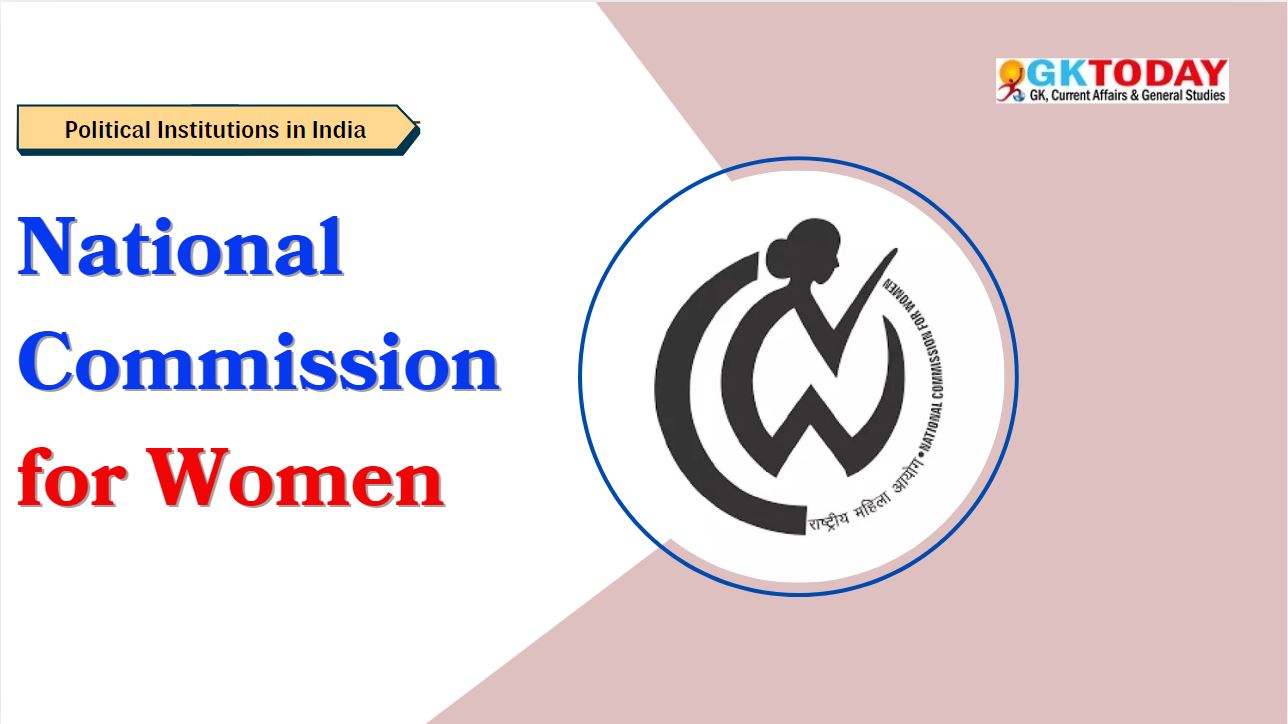National Commission for Women [UGC-NTA NET Political Science Notes]
The National Commission for Women (NCW) is a very important statutory body in India, established to safeguard and promote the rights of women. Set up under the National Commission for Women Act, 1990, it plays important role in reviewing the legal and constitutional provisions for women’s rights. The NCW aims to recommend measures for the enhancement of women’s status in society and to address grievances related to women’s rights violations.
Establishment
The NCW was established in 1992, following the enactment of the National Commission for Women Act in 1990.
- Year of Establishment: 1992
- Under: National Commission for Women Act, 1990
- Objective: Review constitutional and legal safeguards for women and recommend remedial measures.
Composition
The composition of the NCW is designed to ensure diverse representation.
- Members: One chairperson and five other members.
- Appointment: Members are appointed by the Government of India.
- Tenure: Each member serves a term of three years.
Functions
The NCW performs several essential functions.
- Advisory Role: Advises the government on policy matters affecting women.
- Investigation: Investigates complaints and violations of women’s rights.
- Research: Conducts studies on issues related to women.
- Public Awareness: Promotes awareness about women’s rights and legal provisions.
- Monitoring: Monitors the implementation of laws and policies related to women.
Powers
The NCW is endowed with certain powers to fulfil its mandate effectively.
- Summoning: Can summon individuals and documents for inquiries.
- Recommendations: Makes recommendations to the government for improving women’s status.
- Legal Action: Can take up cases of violation of women’s rights.
Key Areas of Focus
The NCW concentrates on several critical areas impacting women.
- Gender Equality: Promotes gender equality and women’s empowerment.
- Violence Against Women: Addresses domestic violence, sexual harassment, and trafficking.
- Economic Empowerment: Advocates for women’s participation in economic activities.
- Health and Education: Focuses on women’s health issues and access to education.
Significant Initiatives
The NCW has launched various initiatives to strengthen women’s rights.
- Policy Recommendations: Contributed to laws like the Protection of Women from Domestic Violence Act, 2005.
- Awareness Campaigns: Conducts campaigns on dowry, female foeticide, and sexual harassment.
- Collaboration: Works with NGOs and civil society for women’s welfare.
Challenges
Despite its efforts, the NCW faces several challenges.
- Implementation: Effective implementation of laws and policies remains a challenge.
- Awareness: Many women lack awareness about their rights.
- Resource Constraints: Limited resources and funding hinder initiatives.
Recent Developments
The NCW continues to evolve with changing societal needs.
- Reports: Publishes regular reports on the status of women in India.
- Digital Initiatives: Emphasises technology for outreach and grievance redressal.
Related Bodies
Several bodies work alongside the NCW to support women’s rights.
- State Commissions for Women: Similar bodies at the state level address local issues.
- Ministry of Women and Child Development: Collaborates with NCW for policy formulation.
Notable Chairpersons
The NCW has been led by several influential chairpersons.
- First Chairperson: Jayanti Patnaik (1992-1995)
- Recent Chairperson: Rekha Sharma (since 2018)


